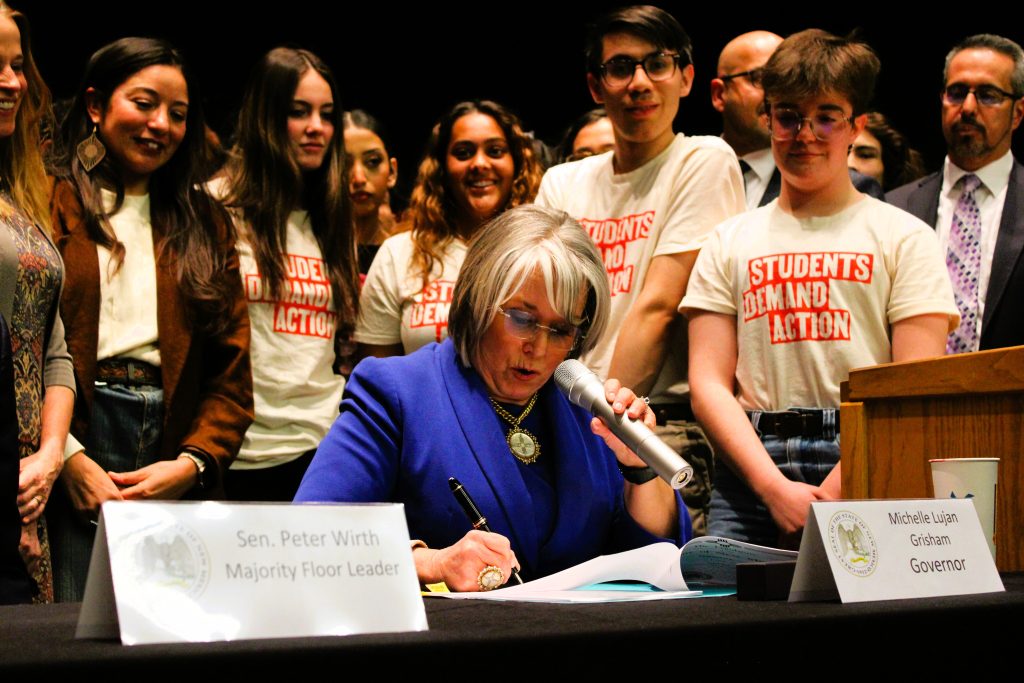After the Senate fell short in its effort to repeal the Affordable Care Act, the Trump administration is poised to use its regulatory powers to accomplish what lawmakers could not: shrink Medicaid.
President Donald Trump’s top health officials could engineer lower enrollment in the state-federal health insurance program by approving applications from several GOP-controlled states eager to control fast-rising Medicaid budgets.
Indiana, Arkansas, Kentucky, Arizona and Wisconsin are seeking the administration’s permission to require adult enrollees to work, submit to drug testing and demand that some of their poorest recipients pay monthly premiums or get barred from the program.
Maine plans to apply Tuesday. Other states would likely follow if the first ones get the go-ahead.
Josh Archambault, senior fellow for the conservative Foundation for Government Accountability, said absent congressional action on the health bill “the administration may be even more proactive in engaging with states on waivers outside of those that are already planning to do so.”
The hope, he added, is that fewer individuals will be on the program as states figure out ways “to transition able-bodied enrollees into new jobs, or higher-paying jobs.” States need to shore up the program to be able to keep meeting demands for the “truly needy,” such as children and the disabled, he added.
To Medicaid’s staunchest supporters and most vocal critics alike, the waiver requests are a way to rein in the $500 billion program that has undergone unprecedented growth the past four years and now covers 75 million people.
Waivers have often been granted in the past to broaden coverage and test new ways to deliver Medicaid care, such as through private managed-care organizations.
But critics of the new requests, which could be approved within weeks, said they could hurt those who are most in need.
The National Health Law Program “is assessing the legality of work requirements and drug testing and all avenues for challenging them, including litigation,” said Jane Perkins, the group’s legal director.
The administration has already said it favors work requirements and in March invited states to suggest new ideas.
Before taking the top job at the Centers for Medicare & Medicaid Services, Seema Verma was the architect of a Kentucky waiver request submitted last year.
Not all states are expected to seek waivers, because Medicaid enjoys wide political support in many states, particularly in the Northeast and West.
Medicaid, the nation’s largest health insurance program, has seen enrollment soar by 17 million since 2014, when Obamacare gave states more federal funding to expand coverage for adults. It’s typically states’ second-largest expense after education.
This year, Senate and House bills tried to cap federal funding to states for the first time. Since the program began in 1965, federal Medicaid funding to states has been open-ended.
Health experts say allowing the waiver requests goes beyond the executive branch’s authority to change the program without approval from Congress.
“The point of these waivers is not for states to remake the program whole-cloth on a large-scale basis,” said Sara Rosenbaum, a health policy expert at George Washington University who chairs a Medicaid group that advises Congress.
Rosenbaum noted that states received waivers for different purposes under the Obama administration.
In Iowa, state officials won the authority to limit non-emergency transportation. Indiana received approval to charge premiums and lock out enrollees with incomes above the federal poverty level if they fell behind on paying premiums.
“Now there is concern these more extreme measures would hurt enrollees’ access to care,” Rosenbaum said.
Three states seeking waivers today are home to three key GOP players in the Senate health debate: Majority Leader Mitch McConnell (Kentucky), Sen. John McCain (Arizona) and Vice President Mike Pence (Indiana).
If states add premiums, as well as work and drug testing requirements, the result would be fewer people enrolling and staying in Medicaid, said David Machledt, senior policy analyst for the National Health Law Program.
“How does that serve the purpose of the Medicaid program and what are the limits of CMS waiver authority?” he asked.
Wisconsin, where Republican Gov. Scott Walker wants his state to become the first to require some Medicaid enrollees to undergo drug testing, is a prime waiver candidate.
State officials stress the effort is not to deter drug users from the program but to help provide treatment for drug users.
Wisconsin is also one of five states seeking a waiver to add a work requirement. People could meet the mandate through volunteering, job training or caring for an elderly relative.
In addition, Wisconsin wants to limit enrollees’ Medicaid benefits to 48 consecutive months, unless the beneficiary is working.
Enrollees with incomes from 50 percent to 100 percent of the federal poverty level, or between $6,030 and$12,060, would have to pay an $8 monthly premium.
All of these rules would apply to about 12 percent of people currently enrolled in Medicaid — adults who are not disabled and don’t have dependent children.
Wisconsin Medicaid Director Michael Heifetz said the main goal of the proposed changes is not to shrink the size of Medicaid but to get people into the workforce.
“The proposal is not designed to have folks leave the program except for positive reasons,” he said.
If the waiver is approved, the state anticipates annual savings of nearly $50 million and a drop in enrollment of 5,102 over five years.
Wisconsin now spends $7 billion on Medicaid and has 1.2 million recipients.
Asked why childless adults — not parents — are the focus of the waivers, Heifetz said Wisconsin wanted to test the provisions on a smaller population first and focus on adults who should be able to find work.
But the Wisconsin effort has sparked broad outrage from hospitals, doctors and advocates for people with disabilities.
The Wisconsin Council of Churches said the state would be punishing the poor with its waivers — and undermining the vitality of communities.
“We are concerned the proposed changes to the program will be detrimental for the health of our most vulnerable neighbors … and undermine the social fabric and vitality of our state,” said Peter Bakken, public policy coordinator for the group in Sun Prairie, a suburb of Madison.
Kaiser Health News (KHN) is a national health policy news service. It is an editorially independent program of the Henry J. Kaiser Family Foundation.























